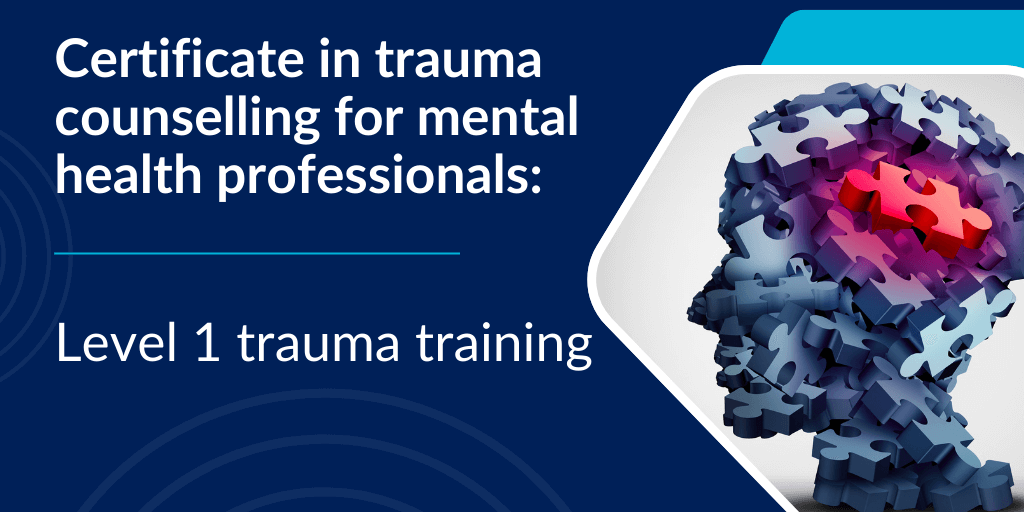Certificate in trauma counselling for mental health professionals: Level 1 trauma training

Strengthen assessment, intervention, and resilience strategies for trauma-informed care.
This six-day trauma certificate will provide the most current information on the biopsychosocial phenomenon of trauma, along with training in how to assess and respond ethically and appropriately to adult clients, given the parameters of the workplace.
The trauma issues experienced by adult clients/consumers may include: early childhood trauma, violent crime, domestic violence, sexual assault and chronic and terminal illness. This trauma training will examine how workers and organizations are affected by and respond to working with traumatized individuals and develop trauma-informed approaches to work that enhance personal and professional resilience.
Program schedule and clinical focus by day:
Below is an overview of the daily structure and key clinical themes explored throughout the training.
Day 1: Neurobiology of Trauma
This session explores trauma reactions, how perceptions of near-death experiences contribute to PTSD, and how to distinguish trauma memories from relived experiences.
Day 2: Reactions to Traumatic Experiences
Participants will examine sensory triggers, state-dependent recall, and emotional flashbacks. The session also covers coping mechanisms, dissociation, and DSM trauma definitions including ASD, PTSD, and racial trauma.
Day 3: Trauma Risk Factors and Flashback Management
Focus on trauma imagery processing techniques and strategies for addressing cognitive stuck points like guilt and shame.
Day 4: Nightmare Management
Explore processing traumatic deaths, and the intersection of bereavement and trauma along with complex PTSD and developmental trauma.
Day 5: Developmental Trauma, Complex Trauma, Assessment Tools
Understand the impact of unmet childhood needs, attachment styles, and coping mechanisms. Review the relationship between BPD and developmental trauma, and commonly used trauma assessment tools.
Day 6: Effective Treatments for Single Incident Trauma and Complex and Developmental Trauma
Review effective treatment modalities for PTSD and complex and developmental trauma, explore strategies for maintaining resilience as a mental health professional.
Learning objectives:
Identify Reactions to Trauma
Participants will learn to identify and understand the range of reactions traumatized individuals may experience. These may include:
- Acute PTSD
- PTSD
- Grief and bereavement reactions
- Complex trauma
- Developmental trauma
- Chronic frustration and misery
- Dissociative reactions
- Anxious and disorganized attachment patterns
Assess Trauma Impacts
Participants will learn key questions to ask clients in both acute and complex situations to assess trauma responses and guide appropriate clinical interventions.
Intervene with Evidence-Based Strategies
Participants will explore treatment strategies to help clients manage and overcome the debilitating effects of:
- Hypo/hyperarousal
- Affect and sleep dysregulation
- Intrusive imagery, flashbacks, and nightmares
- Guilt, shame, and blame
- Client paralysis and therapeutic impasses
Treatment Objectives by Trauma Type
For individuals with single-incident trauma, the objective is to return to baseline functioning using psychoeducation and symptom management.
For clients with complex or developmental trauma, the goal is to address entrenched, maladaptive patterns by clarifying their origin and manifestations, and applying a systematic process to shift core belief systems and schemas.
Don’t miss this opportunity to learn from renowned trauma expert Natalie Zlodre Choy and elevate your trauma-informed practice—register now.
Back to ‘Our Courses’



